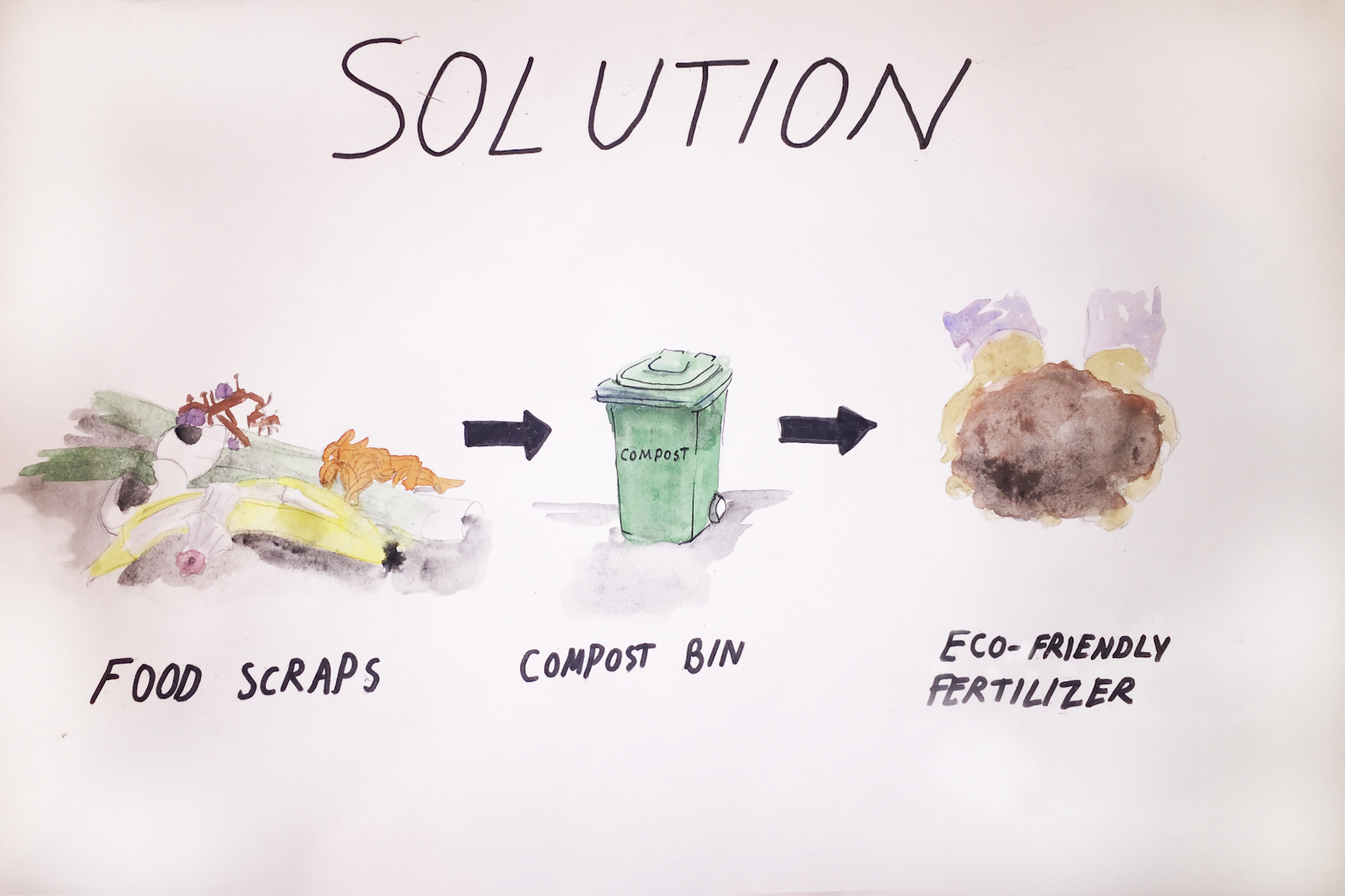Impact Project: Scraps to Soil
This is a guest post written by Thomas Logan, '20 about his Impact Project.
Food scraps are valuable resources that are being wasted. When sent to the landfill, food waste rots. As it does, it releases methane, a greenhouse gas thirty times as potent as carbon dioxide, which is contributing to global warming. According to the U.S. Environmental Protection Agency, landfills account for 34 percent of all methane emissions in the United States.
However, rather than contributing to the problem of climate change, food scraps can be used to help mitigate it. Food scraps can be diverted from landfills, converted to compost, and used as a fertilizer in farms and gardens. Compost strengthens beneficial ecosystems in the soil, feeding microbes in the ground which absorb carbon dioxide from the atmosphere.
As the first step in my efforts to combat food-waste driven climate change, I’ve implemented a composting system at Sequoyah. In the system, students are asked to dispose of food waste in compost bins rather than trash cans. After the waste is converted to a rich soil amendment in worm composting bins, it will be added to garden plots on the south end of campus. I plan for this cycle to be continued by members of the Sustainable Campus Committee after I graduate, and I hope to extend my system and its impact to other communities in the future.



